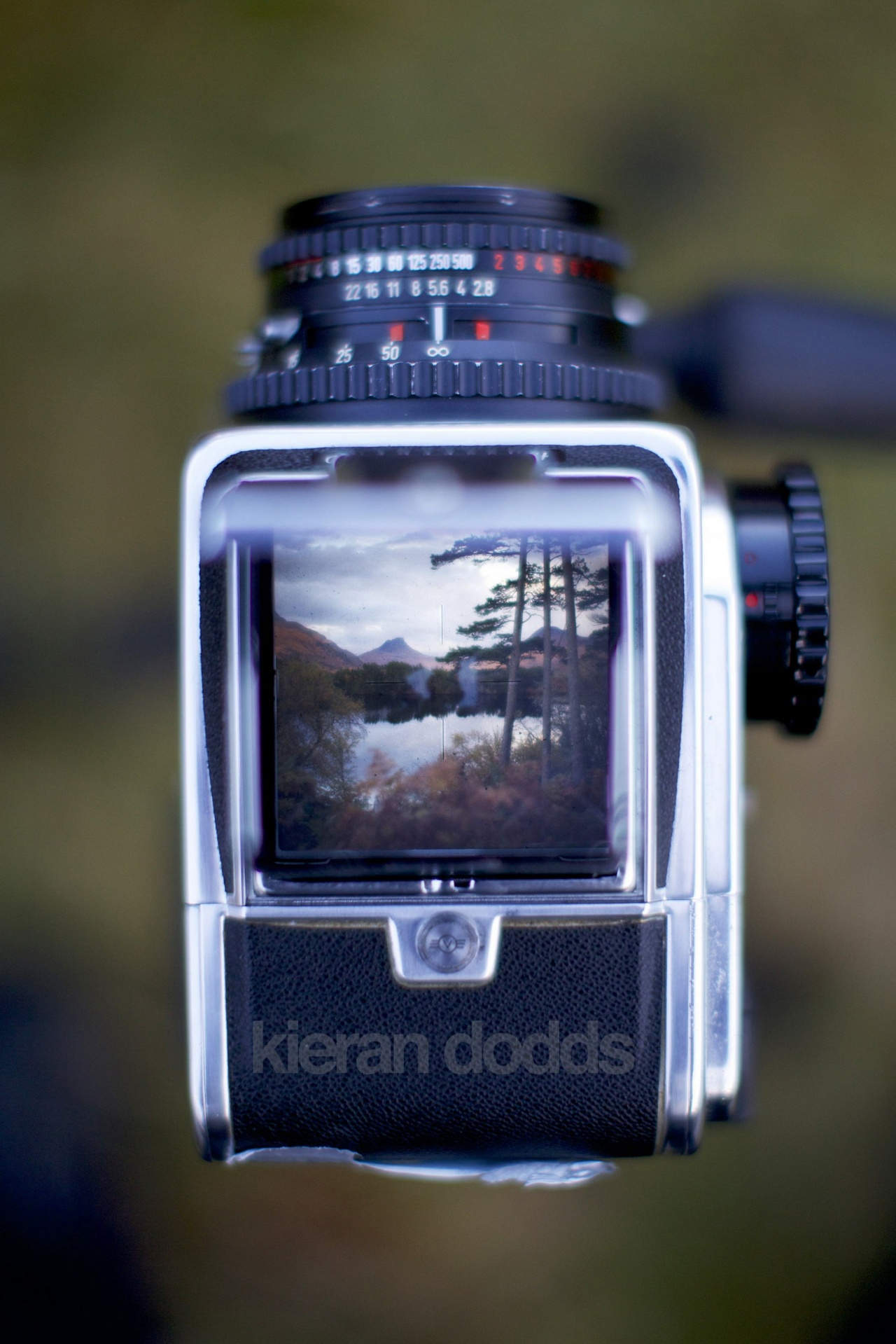For my latest work on Scotland I am returning to my roots- shooting film. And this is why…
1. to see
A wise man once said, ‘If you see the picture you have already missed it.’. Maybe it was a woman who said that. Either way its wise and tell us that photography is about predicting the moment. Its all about timing and being ready. The discipline of having 12 frames before changing a film forces brevity in picture making. We begin editing long before we press the shutter. Analogue film forces us to look up and look out from the camera rather than hunching chimp-like over the screen looking for digital fleas.
2. to be
The most famous photographic mantra is ‘f8 and be there’. But with digi we are tempted to f8 and blog more. Our minds are distracted by the outcomes of social networking even in the most remote parts of the world. I was the first Westerner to email from a remote village in China’s Qinghai province after they received a new phone aerial. The local Tibetans gained a data network that is the envy of Glasgow residents but something was lost for the traveller. Don’t get me wrong, the internet does make life better and is a great way to get the stories out there but it has gone too far where we forget what it is to be. This mindfulness of shooting analogue will inform my digital work- to f8 and actually be there.
3. to slow down
The Italians have the slow food movement to savour the flavour and make central the social function of eating. My therapy in a frantic world is the slow photo movement. I may have just started that movement now. Using film today is the photographic equivalent of speed bumps on roads. We spend thousands of years evolving our roads to become smoother and slicker so we have increasing efficiency and then some fool puts massive obstacles in your way to slow you down. But we do it because people are more important than simple efficiency. Viewing people as machines tends to have been harmful to humanity. Slowing down may actually be beneficial?
4. to take fewer bad photographs
If you take fewer frames you will take fewer bad ones, right? Even with percentages, film is still the winner. On a shoot with 1000 frames, let’s say, my first edit gets me down to 100 then I can whittle it down to 10-30 depending on client and how good a day it was. Thats 1-3% success rate. With film I expect 1 or 2 good ones in each roll of 12- thats at least 8%. Film increased efficiency by 800% just by slowing down! BOOM!
5. to enjoy life more
A Malawian driver said how it must be wonderful in the UK because of our greater comfort and healthcare. I agreed its a privilege to have free cures for preventable diseases but we Brits don’t enjoy it and instead fill our time with moans about being busier and more stressed than before. The UK has an epidemic of stress-related disease and the irony is Mr Malawi (not his real name) was the most pleasant, relaxed but industrious man I had met in months. He drove slowly but we still got there on time. Somewhere between Malawi’s pace and that of the UK could work. Maybe the pace of an independent Scotland? Or maybe not.
6. to celebrate imperfection
What analogue lacks in electronic wizardry it makes up in soul. Sorry if that sounds fuzzy but it is true. Like canned salmon compared to a fresh one wrestled from the Highlands’ finest rivers. The result tastes better somehow. Or playing a vinyl record compared to a pristine mp3. The imperfect crackles and pops offer a more authentic rendition of reality in some respects. Remember in The Matrix they had to add flaws to the programme because people were getting suspicious? Ergo…Vis a vie…concordently!
7 to be cool
Film is objectively cooler than digital. This fact is based on the evidence that my local lab process scores of rolls per week thanks to the trendy students in Glasgow’s west end. Mind you, paying ’11 per roll of E6 is uncool. Thats where the analogue mail service works better than its digital brother.
“
